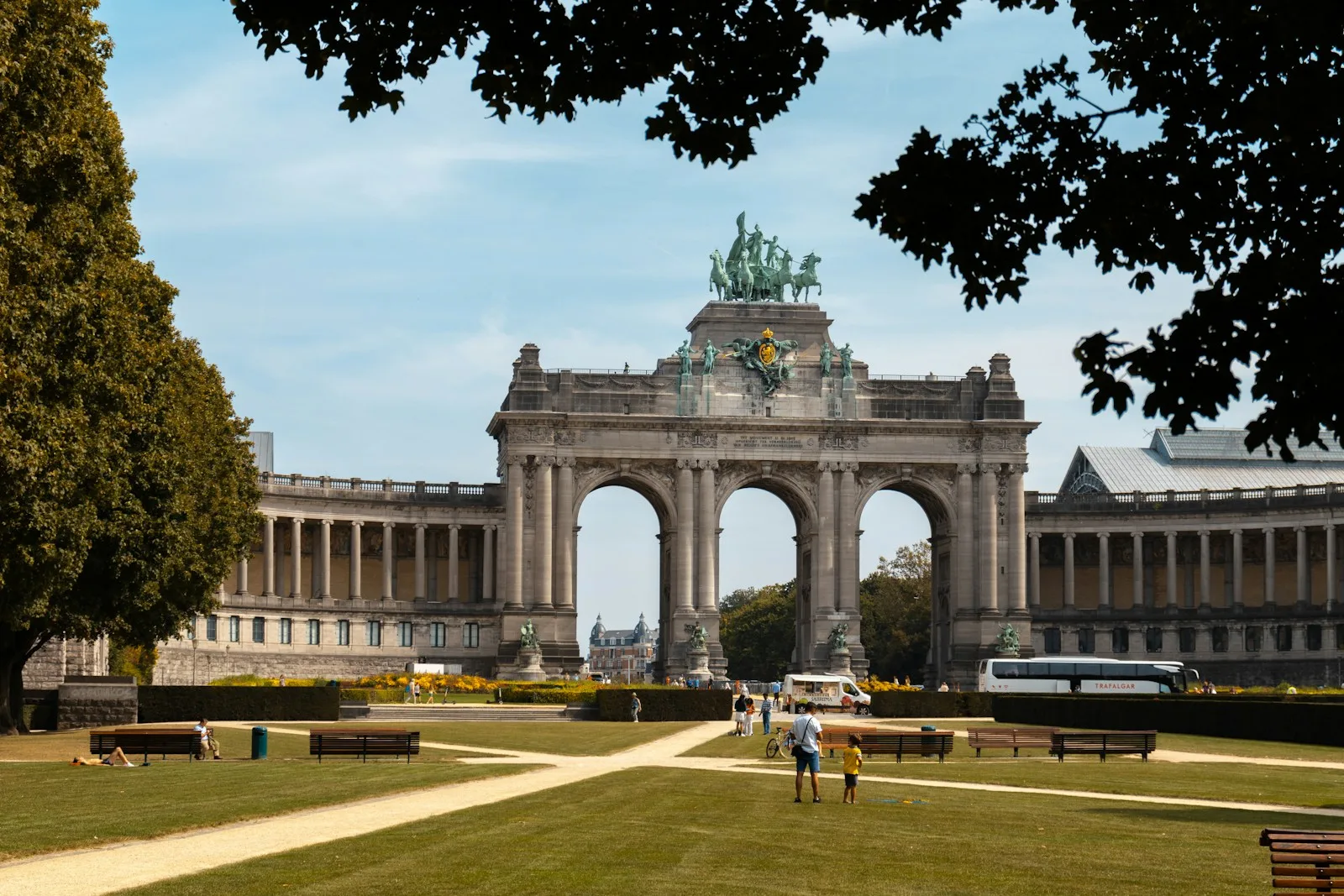England Travel Guide: From Stone Circles to City SkylinesIntro to England Travel Guide
England is a country of rich layers — from medieval castles and misty moors to vibrant cities, literary legends, and seaside towns. Whether you’re exploring Roman ruins, sipping ale in a village pub, or admiring the skyline from the London Eye, England delivers a cultural journey through time and place.
Start planning your trip with this complete England Travel Guide — including curated England tours, travel cost insights, the best time to visit England, and immersive things to do across cities, countryside, and coast.
Where to Go in England
Bath | Birmingham | Bradford | Bristol | Cambridge | Canterbury | Carlisle | Chelmsford | Chester | Chichester | Durham | Exeter | Gloucester | Hereford | Kingston upon Hull | Lancaster | Leeds | Leicester | Lichfield | Lincoln | Liverpool | London | Manchester | Newcastle upon Tyne | Norwich | Nottingham | Oxford | Peterborough | Plymouth | Portsmouth | Preston | Ripon | Salford | Salisbury | Sheffield | Southampton | Southend-on-Sea | St Albans | Stoke-on-Trent | Sunderland | Truro | Wakefield | Wells | Westminster | Winchester | Wolverhampton | Worcester | York
💡Quick Facts:
Country: United Kingdom
Administrative Division: England
Continent: Europe
Area: 130,279 km² (50,301 mi²)
Population: ~57 million (2024 est.)
Density: ~438 people/km²
Capital: London
Regions/Subregions:
. North East England (Newcastle upon Tyne, Durham, Sunderland)
. North West England (Manchester, Liverpool, Lake District)
. Yorkshire and the Humber (Leeds, York, Sheffield)
. East Midlands (Nottingham, Leicester, Derby)
. West Midlands (Birmingham, Coventry, Wolverhampton)
. East of England (Cambridge, Norwich, Essex)
. South East England (Brighton, Oxford, Portsmouth)
. South West England (Bristol, Cornwall, Devon)
. Greater London (City of London, Westminster, Kensington)
Official & Regional Languages: English (official); Cornish recognized as a minority language in Cornwall
Currency: Pound Sterling (GBP)
Time Zone(s): Greenwich Mean Time (UTC+0); British Summer Time (UTC+1) in summer
Airports: London Heathrow (LHR), London Gatwick (LGW), Manchester (MAN), Birmingham (BHX), London Stansted (STN), Bristol (BRS), Newcastle (NCL)
Climate: Temperate maritime; mild summers, cool winters, frequent rainfall year-round
Known For: Historic landmarks (Tower of London, Stonehenge), royal heritage, literature, football, countryside villages, museums
🛂Arrival Info:
Entry requirements follow UK immigration rules; visa-free entry for citizens of many countries including the US, Canada, EU, Australia (up to 6 months).
eVisa or Standard Visitor Visa for eligible nationalities; check UK Government Visa Guide.
Customs: Declare cash over €10,000 or equivalent; restrictions on certain foods, plants, and weapons.
💉Health Info:
No mandatory vaccines for entry; recommend routine vaccines and Hepatitis A for some travelers.
NHS provides emergency care to all; treatment beyond emergencies may incur costs for non-residents.
Private clinics widely available in cities.
Travel insurance recommended for non-UK residents.
✅ Check travel insurance options for travel emergencies, delays, and medical needs abroad — Get coverage here
✅ Stay Informed with Official Updates: WHO – International Travel & Health | CDC – Travel health updates
🚨Travel Advisory:
Generally safe; petty theft can occur in tourist hubs.
Terrorism risk exists but is closely monitored.
Public transport and road networks are reliable.
✅ Stay Informed with Official Updates: US Travel Advisory | UK Foreign Travel Advice
📅Holidays:
January 1 – New Year’s Day
Good Friday & Easter Monday – Dates vary
First Monday in May – Early May Bank Holiday
Last Monday in August – Summer Bank Holiday
December 25 – Christmas Day
December 26 – Boxing Day
💰Visitor Info:
Currency: GBP; ATMs widely available.
Credit/debit cards accepted nearly everywhere; contactless payments common.
Tipping 10–12.5% in restaurants if not included.
Budget: £60–90/day; Midrange: £120–180/day; Luxury: £200+/day.
✈️Airports:
LHR – London Heathrow: Largest and busiest in the UK
LGW – London Gatwick: Major international and leisure flights
MAN – Manchester: North England’s main airport
Other key airports: STN (Stansted), LTN (Luton), BHX (Birmingham), BRS (Bristol), NCL (Newcastle)
Excellent rail and coach links to all regions
✅ Delayed or canceled flight? Check if you’re eligible for compensation
🚍Transport:
Extensive rail network (National Rail, Eurostar to Paris/Brussels).
London Underground, trams, buses, taxis, and ride-hailing apps.
Driving on the left; congestion charges apply in central London.
Domestic flights link major cities, though trains are often faster.
✅ Book reliable airport transfers and in-city rides in advance. Reserve your ride here
📶Connectivity:
SIM cards from EE, O2, Vodafone, Three; eSIMs available.
5G widely available in cities; strong 4G coverage nationwide.
Public Wi-Fi in most cafés, transport hubs, and attractions.
✅ Stay connected abroad with affordable eSIM data packs. Get your eSIM here
📜Laws & Etiquette:
Legal drinking age: 18.
Smoking banned in indoor public places.
Queueing is important in public spaces.
Dress codes generally casual, but smart attire for upscale venues.
🛡️Emergency Info:
Emergency number: 999 (police, ambulance, fire).
Non-emergency police: 101.
NHS medical advice: 111.
✅ Use embassy locator tools: Embassies Worldwide
🌦️Weather:
Mild climate; rain possible any time of year.
Warmest months: June–August (15–25°C).
Coldest months: December–February (0–8°C).
Best time: Late spring to early autumn (May–September) for festivals and outdoor events.
✅ Stay prepared—check the weather forecast for your destination — Weather Forecast
England by Region – Where to Go
England’s diversity shines best when explored region by region — from London’s buzz to Cornwall’s surf and Yorkshire’s green dales.
London & the Southeast
The capital and gateway to the rest of England.
- London: Iconic landmarks, world-class museums, royal palaces, and global cuisine.
- Oxford & Cambridge: University towns full of spires, gardens, and punting.
- Brighton: Seaside fun, quirky neighborhoods, and creative culture.
Southwest England
Rolling hills, dramatic coasts, and ancient heritage.
- Cornwall: Surf beaches, fishing villages, and cliffside walks.
- Devon: Dartmoor National Park and cream teas in historic towns.
- Bath: Roman baths, Georgian architecture, and literary lore.
Central England & the Midlands
Industrial heritage, Shakespearean sites, and countryside retreats.
- Stratford-upon-Avon: Birthplace of Shakespeare and a charming Tudor town.
- Birmingham: Culinary scene and canals rivaling Venice.
- The Cotswolds: Quintessential England — stone cottages, tea shops, and rolling farms.
Northern England
Steeped in history and natural drama.
- York: Roman walls, Gothic cathedrals, and Viking roots.
- Manchester & Liverpool: Music history, nightlife, and sports legacy.
- Lake District: Mountains, lakes, and literary walks.
Eastern England
Quiet coastlines, historic cities, and farmland vistas.
- Norfolk & Suffolk: Seaside towns, the Broads, and charming market villages.
- Cambridge: Punting on the River Cam and scholarly traditions.
- Lincoln: A rising star with a medieval cathedral and hilltop charm.
Top Places to Visit in England
Explore the most iconic and rewarding places to visit in England, grouped by theme.
Historic & Cultural Cities
- London: A world city with centuries of influence.
- York: England’s most picturesque walled city.
- Bath: Architecture, history, and wellness wrapped in one.
Coastal Escapes
- Cornwall: Rugged cliffs and artistic fishing villages.
- Brighton: Bohemian beaches and a famous pier.
- Whitby: Gothic abbeys and Dracula’s legend.
Countryside & National Parks
- Lake District: England’s poetic and mountainous heart.
- Cotswolds: Honey-colored villages and timeless charm.
- Peak District: Limestone dales and hilltop views.
Iconic Landmarks & Heritage Sites
- Stonehenge: Ancient mysteries in the Wiltshire plains.
- Hadrian’s Wall: Roman fortifications at the edge of empire.
- Tower of London: Crown jewels and castle history in the capital.
How to Choose Where to Go in England
Where you go depends on what kind of English experience you’re after.
- For First-Time Visitors: London + Bath + Oxford or York for history and ease
- For Nature Lovers: Lake District, Peak District, or Cornwall for hiking and fresh air
- For History Buffs: Add Hadrian’s Wall, Salisbury, and Stratford-upon-Avon
- For Quieter Travel: Explore the Cotswolds or East Anglian coast
- Efficient Pairings: London + Cambridge, or Manchester + Lake District
How to Get Around England
England is one of the easiest countries in Europe to navigate.
- Trains: Fast and frequent between cities; book in advance for savings
- Buses/Coaches: Budget-friendly routes via National Express and Megabus
- Underground & City Transit: Excellent systems in London and Manchester
- Rental Cars: Ideal for rural areas like Cornwall, Cotswolds, and Lake District
- Contactless Payments: Most transit accepts tap-and-go cards and Apple/Google Pay
Travel Budget & Costs in England
While England isn’t cheap, you can explore affordably with smart planning.
- Budget: $60–90/day — hostels, pub food, off-peak train travel
- Mid-Range: $120–180/day — B&Bs, site entries, regional trains
- Luxury: $250+/day — boutique hotels, guided day tours, fine dining
Sample Costs:
- London–Oxford train: ~$30
- Museum entries: Free to $30 (many museums are donation-based)
- Pub meal: $12–20
- West End theatre ticket: $40–100
- Hotel room in Bath: $120–250 depending on season
Best Time to Visit England
England has four distinct seasons, but mild weather makes it a year-round destination.
- Spring (Mar–May): Blooming gardens and fewer crowds
- Summer (Jun–Aug): Festivals, long days, and the countryside at its best
- Autumn (Sep–Nov): Fall colors, crisp walks, and shoulder-season prices
- Winter (Dec–Feb): Cosy pubs, Christmas markets, and fewer tourists
The best time to visit England depends on your goals — summer for outdoor travel, spring and autumn for fewer crowds and better prices.
Must-See Experiences in England
These top things to do in England offer cultural immersion, timeless beauty, and local charm.
- Walk across Tower Bridge and explore London’s South Bank
- Sip afternoon tea in a historic manor or posh hotel
- Hike to the summit of Scafell Pike in the Lake District
- Tour Shakespeare’s birthplace and catch a play in Stratford
- Stroll through Roman baths and Georgian terraces in Bath
- Visit the British Museum and gaze at the Rosetta Stone
- Ride a steam train through Yorkshire’s moors
- Walk among ancient stones at Avebury or Stonehenge
Book immersive England tours and experience unforgettable things to do in England — from sacred temple rituals and highland treks to floating markets and lakeside food adventures.
Best Travel Itineraries in England
These sample routes help you structure your trip by time, interest, and location.
7-Day Classic England
London → Oxford → Bath → Cotswolds
- Ideal for first-timers and a mix of city and countryside
10-Day Cultural Deep Dive
London → York → Lake District → Liverpool or Manchester
- Art, history, nature, and northern cities
2-Week Grand England Road Trip
London → Canterbury → Cotswolds → Cornwall → Devon → Bath → Stonehenge → London
- A full-circle experience of coast, castles, and countryside
Local Cuisine & Culinary Experiences
English cuisine is hearty, regional, and far more delicious than its reputation suggests.
What to Try
- Fish and Chips: Best from a seaside chippy
- Sunday Roast: Meat, roast potatoes, and Yorkshire pudding
- Full English Breakfast: Bacon, eggs, sausage, beans, and toast
- Cornish Pasty: A classic West Country snack
- Afternoon Tea: Finger sandwiches, scones, and clotted cream
Culinary Highlights
- Visit Borough Market (London) or the Covered Market (Oxford)
- Book a food tour in York or Liverpool
- Enjoy local ales in a 400-year-old countryside pub
- Try modern British fare at gastropubs or Michelin-star restaurants
Travel Safety & Cultural Etiquette in England
England is one of the safest and easiest countries to visit in Europe.
- Tap water is drinkable everywhere
- Tipping is optional; 10% is polite in restaurants
- Queueing is serious — always line up
- Use “please” and “thank you” often — it matters
- Driving is on the left — take care on country roads
Where to Go Next – Pair England with These Destinations
England connects seamlessly with the rest of the UK and Europe.
- Scotland: Combine with Edinburgh, the Highlands, or the Isle of Skye
- Wales: Add Snowdonia or coastal villages like Tenby or St Davids
- Ireland: Fly or ferry to Dublin, then explore the Emerald Isle
- France: Eurostar to Paris in just over 2 hours
Scotland Travel Guide | Ireland Travel Guide | Wales Travel Guide | France Travel Guide
Final Planning Checklist for England
- Book train tickets in advance for best prices
- Reserve hotels early in London, Bath, and the Lake District
- Get an Oyster card or contactless card for London transport
- Dress in layers — weather can shift quickly
- Pack walking shoes for cobblestones and country paths
- Download National Rail and local transport apps
- Carry a debit/credit card — cash is used less frequently
- Make restaurant and museum bookings ahead for summer visits
Explore England with confidence using our trusted tips, local insights, and region-by-region planning tools.
For more expert travel tips, practical strategies, and trusted tools — visit our Homepage and get inspired for your next trip.






